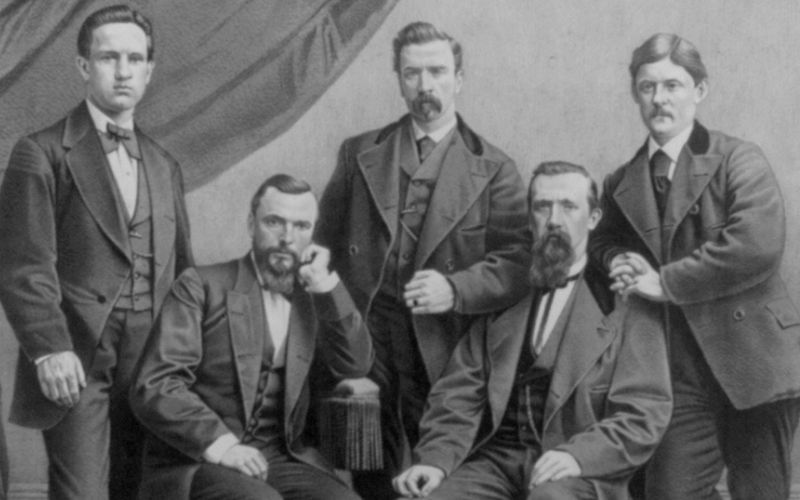Drogheda, Co. Louth native Patrick Carr has encountered good fortune and bad on a road which has taken him from Ireland to some of the smallest towns in the U.S.
“I was on the last set of planes…that left Ireland before the Celtic Tiger took off.” With a laugh, Carr adds, “Things got much better when I left. I came of age in Ireland in the 1980s. People talk about recession in Ireland now, but things were much worse (back then).”
As luck would have it, however, while in Ireland, Carr met up with some very pleasant folks from a small town in Iowa. Carr accompanied the Iowans on trips all over Ireland before they returned home.
“They said, ‘You must come to Iowa if you ever get the chance,’” Carr recalled.
“You have to be careful when you invite an Irishman to your home because they may very well take you up on it.”
Indeed, by the time Carr became a sociologist working at Rutgers University, he was hired by the prestigious Macarthur Foundation to study small towns in America. The result is an insightful new book titled "Hollowing Out the Middle: The Rural Brain Drain and What it Means for America" (Beacon).
Carr, as well as his wife, Maria J. Kefalas, called up the friends he had made and said they would not only be coming to visit, but they would, in fact, be moving to Iowa. Carr was looking to study how children came of age in this town, which they call “Ellis,” to protect the anonymity of their subjects.
What they found is that in Ellis, and many other similar places, ambitious young children not only leave in droves, but are encouraged to do so.
This might be fine for the child who escapes. But the town they leave behind, as well as the kids who decide not to leave the small town, pay a price.
If these trends continue, small towns across the U.S. will slowly perish, leaving the few remaining residents with few economic and social opportunities.
It might seem strange for an immigrant to tackle the quintessentially American topic of small town life. But life in Ireland and Ellis, Iowa, are not so different.
“We’ve always had brain drain in Ireland. I’m part of that,” says Carr, who honed his observational skills as a kid, spending time with his father who worked in bookie shop.
“You’d see all walks of life, all manner of strange people” in the bookie shop, says Carr. “You have to watch what people do and see how they behave. In a bookie shop you have to be very sharp about who’s trying to pull the wool over your eyes.”
Carr himself was the first member of his family to complete college. He adds that the scholarship he was awarded after graduating from University College Dublin was available only to students interested in getting out of Ireland and traveling.
Carr eventually earned a Ph.D. in sociology at the University of Chicago. When he began practicing sociology, Carr’s work centered around crime, as well as the influences youth face as they come of age in the U.S.
That latter interest, combined with the “dumb luck” of having some folks fromIowa stay with neighbors in Ireland, eventually landed him the task of exploring how America’s small towns can be saved.
Carr adds that being an outsider helps when it comes to examining a small town.
“All good sociology is done when you are an outsider because you see things with a fresh set of eyes,” says Carr.
“I talk to people and say, ‘I’m just a dumb foreigner. Educate me.’ I’ll play the dumb mick for a little bit, and it works.”
Carr and his wife have been giving talks on this topic across the nation, no easy task for the parents of three young children, including a daughter born just a few weeks ago.
Among the ideas small tows need to pursue, Carr says, is a sensible immigration policy, which brings in new workers but does not exploit them or create tensions with native residents.
Up next for Carr is an intensive study of youth in Philadelphia (where he lives). Of particular interest to Carr is the so-called “stop snitching” phenomenon, in which witnesses refuse to cooperate with police.
No surprise there. Ireland has, in the past, had some issues with informers, hasn’t it?
Contact Tom Deignan at tomdeignan@verizon.net




Comments